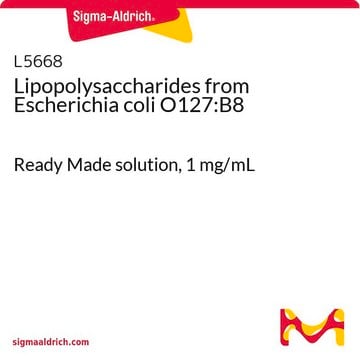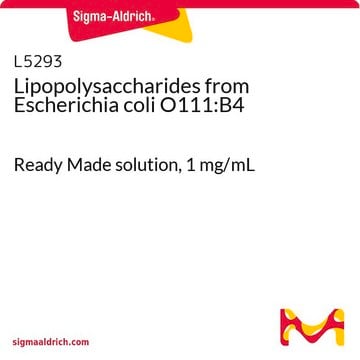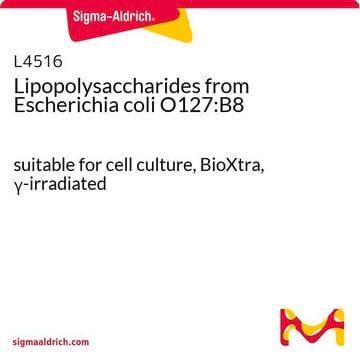L6026
Dodecilsulfatosódico
BioXtra, ≥99.0% (GC)
Sinónimos:
Dodecil sulfato de sodio, Dodecil sulfato sodium salt, Lauril sulfato sodium salt, Laurilsulfato de sodio, SDS
About This Item
Productos recomendados
biological source
synthetic (oragnic)
Quality Level
description
anionic
product line
BioXtra
assay
≥99.0% (GC)
form
powder
mol wt
micellar avg mol wt 18,000
aggregation number
62
impurities
Insoluble matter, passes filter test
loss
≤0.5% loss on drying, HV, 20-25 °C
CMC
7-10 mM (20-25°C)
mp
204-207 °C (lit.)
transition temp
cloud point >100 °C
solubility
H2O: 0.1 M, clear, colorless
density
0.496 g/cm3
anion traces
chloride (Cl-): ≤0.05%
phosphate (PO43-): ≤0.0001%
cation traces
Al: ≤0.0005%
Ba: ≤0.0005%
Bi: ≤0.0005%
Ca: ≤0.001%
Cd: ≤0.0005%
Co: ≤0.0005%
Cr: ≤0.0005%
Cu: ≤0.0005%
Fe: ≤0.0005%
K: ≤0.02%
Li: ≤0.0005%
Mg: ≤0.0005%
Mn: ≤0.0005%
Mo: ≤0.0005%
Ni: ≤0.0005%
Pb: ≤0.0005%
Sr: ≤0.0005%
Zn: ≤0.0005%
absorption
≤0.05 at 280 in H2O at 0.1 M
≤0.08 at 260 in H2O at 0.1 M
HLB
40
SMILES string
[Na+].CCCCCCCCCCCCOS([O-])(=O)=O
InChI
1S/C12H26O4S.Na/c1-2-3-4-5-6-7-8-9-10-11-12-16-17(13,14)15;/h2-12H2,1H3,(H,13,14,15);/q;+1/p-1
InChI key
DBMJMQXJHONAFJ-UHFFFAOYSA-M
¿Está buscando productos similares? Visita Guía de comparación de productos
General description
Application
- surfactant to evaluate cytochrome c affinity by using surface plasmon resonance
- surfactant in particle enhanced immunoassays to inhibit aggregation of particles and to enhance single microsphere coupling
- biofilm-disrupting agent
Features and Benefits
- Tested to confirm low levels of heavy metal contamination, ensuring suitability for various applications
- Tested for trace levels of Anions and Cations
- High-purity product ideal for biochemical research purposes
Other Notes
comparable product
signalword
Danger
hcodes
Hazard Classifications
Acute Tox. 4 Oral - Aquatic Chronic 3 - Eye Dam. 1 - Skin Irrit. 2
Storage Class
11 - Combustible Solids
wgk_germany
WGK 2
flash_point_f
338.0 °F
flash_point_c
170 °C
ppe
Eyeshields, Faceshields, Gloves, type P3 (EN 143) respirator cartridges
Elija entre una de las versiones más recientes:
Certificados de análisis (COA)
¿No ve la versión correcta?
Si necesita una versión concreta, puede buscar un certificado específico por el número de lote.
¿Ya tiene este producto?
Encuentre la documentación para los productos que ha comprado recientemente en la Biblioteca de documentos.
Los clientes también vieron
Nuestro equipo de científicos tiene experiencia en todas las áreas de investigación: Ciencias de la vida, Ciencia de los materiales, Síntesis química, Cromatografía, Analítica y muchas otras.
Póngase en contacto con el Servicio técnico





